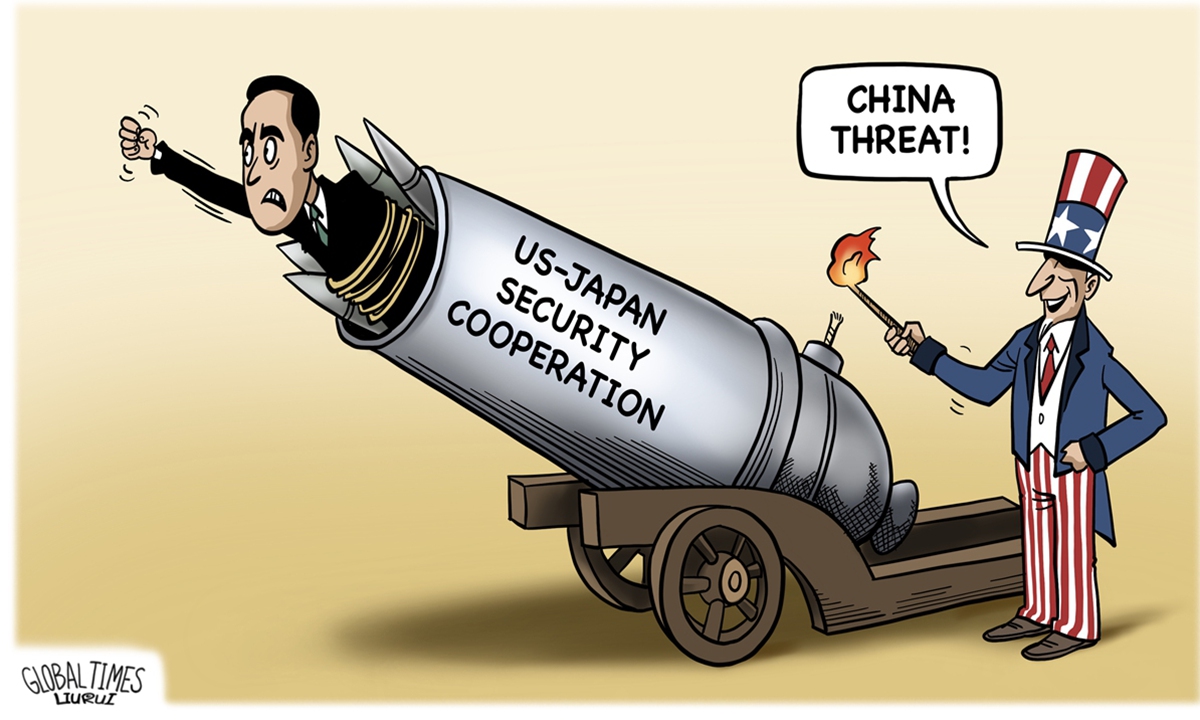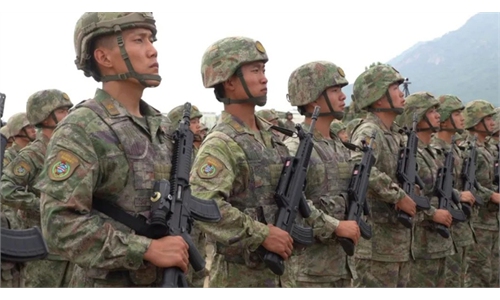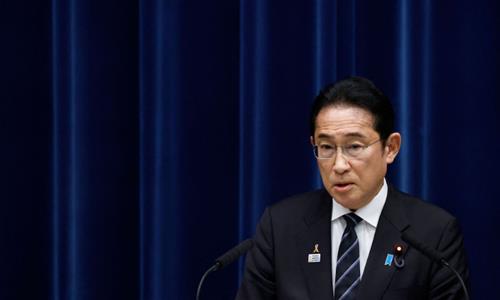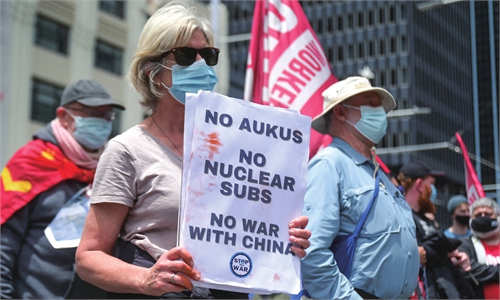Enhanced US-Japan military alliance ‘puts Tokyo at front line of counterattacks’
Washington’s intention of using Japan as outpost to deter regional countries laid bare: expert

Illustration: Liu Rui/GT
Japanese and US defense chiefs and top diplomats met in Tokyo on Sunday for talks to boost military cooperation, including upgrading US forces command and reaffirming the US' commitment to "extended deterrence." The move doubles down on the US' intention of using Japan as an outpost in the Asia-Pacific region to boost its nuclear deterrence to contain countries such as China and elevate the role of the Japan Self-Defense Forces in the US-Japan military alliance.However, this will put Tokyo in the front line of a counterattack from other countries, including a nuclear conflict, said Chinese observers. Moreover, the enhanced US-Japan alliance will likely provoke a new round of arms race in tactical nuclear weapons in the region, experts said.
US Secretary of State Antony Blinken arrived in Japan on Sunday as part of an Asia-Pacific tour. Blinken and US Defense Secretary Lloyd Austin held 2+2 talks with Japanese Foreign Minister Yoko Kamikawa and Defense Minister Minoru Kihara, according to a joint statement released by the Pentagon.
The ministers stressed the importance of continuing to enhance US extended deterrence, the joint statement said.
This includes atomic weapons, marking a shift from Japan's earlier reluctance to openly discuss the sensitive issue in the world's only country to have suffered nuclear attacks, AP reported.
Ever since the end of WWII, Japan has been under the US nuclear protection umbrella, yet reaffirming this "extended deterrence" this time signals Washington's intention of using Japan as an outpost to strengthen its nuclear deterrence in Northeast Asia, Wei Dongxu, a Beijing-based military expert and media commentator, told the Global Times on Sunday.
Wei said such a concerning move not only completely overturns Japan's war-renouncing constitution, but all policies related to Japan's exclusively defense-oriented strategy will be completely breached.
"If the US were to use Japan's bases to conduct tactical nuclear strikes, when other countries retaliate, they are likely to retaliate with nuclear weapons as well. Targets would likely include US military bases in Japan, effectively dragging Japan into the risk of nuclear conflict," Wei said.
The joint statement also announced that the US intends to reconstitute US Forces Japan as a joint force headquarters reporting to the Commander of US Indo-Pacific Command.
This move further ties Japan to the war chariot of the US, where they must advance and retreat together, Lü Chao, a Korean Peninsula expert at the Liaoning Academy of Social Sciences, told the Global Times. He said criticizing China as threat just allows US to intervene with excuses like "extended deterrence" during the so-called crisis in Taiwan Straits and South China Sea and provide a pretext for extending nuclear threats to the entire Asia-Pacific region, which is dangerous.
Xin Qiang, director of the Taiwan Studies Center at Fudan University, said the upgrading of the US command showcases a new level of the US-Japan military alliance. Once the command is upgraded, it will enhance the role and status of the Japan Self-Defense Forces within the alliance, Xin said.
He said this will further accelerate Japan's military dvelopment and the exercise of collective self-defense rights to engage in a potential warfare in the future.
Austin and Kihara also met their South Korean counterpart, Shin Won-sik, for talks in Tokyo on Sunday where they signed an agreement to "institutionalize" trilateral cooperation via efforts like real-time sharing of North Korean missile warning data and joint military exercises, media reported.
Later on Monday Blinken and Kamikawa will meet Indian Foreign Minister S. Jaishankar and Australia's Penny Wong, their counterparts in the Quad, an alliance seen as a bulwark against Beijing.
Chinese experts said that Blinken's Asia tour clearly aims at challenging China. The US has been making efforts to form a NATO-like alliance in Asia, Xin said.




